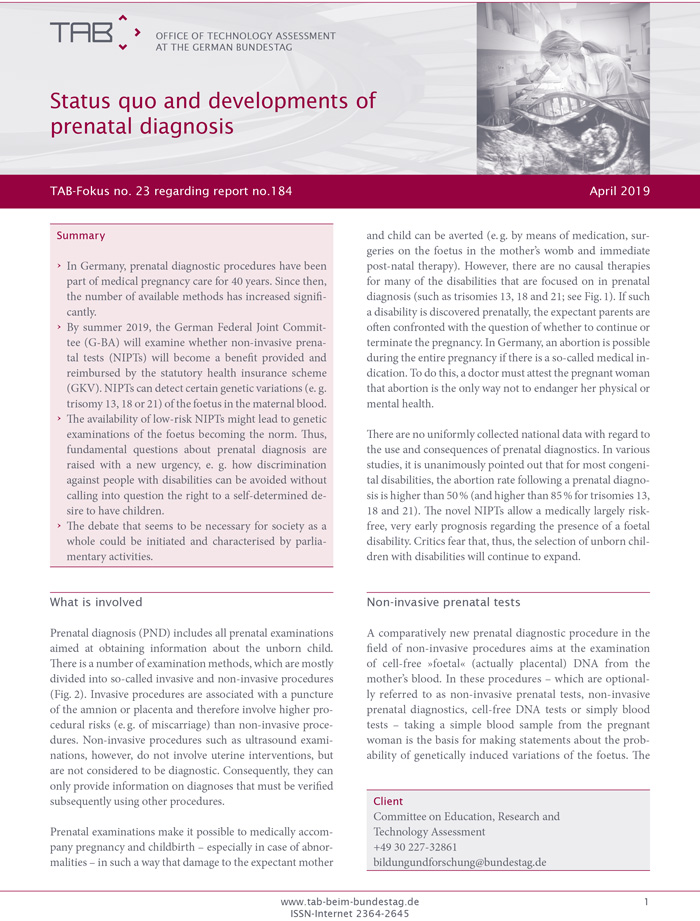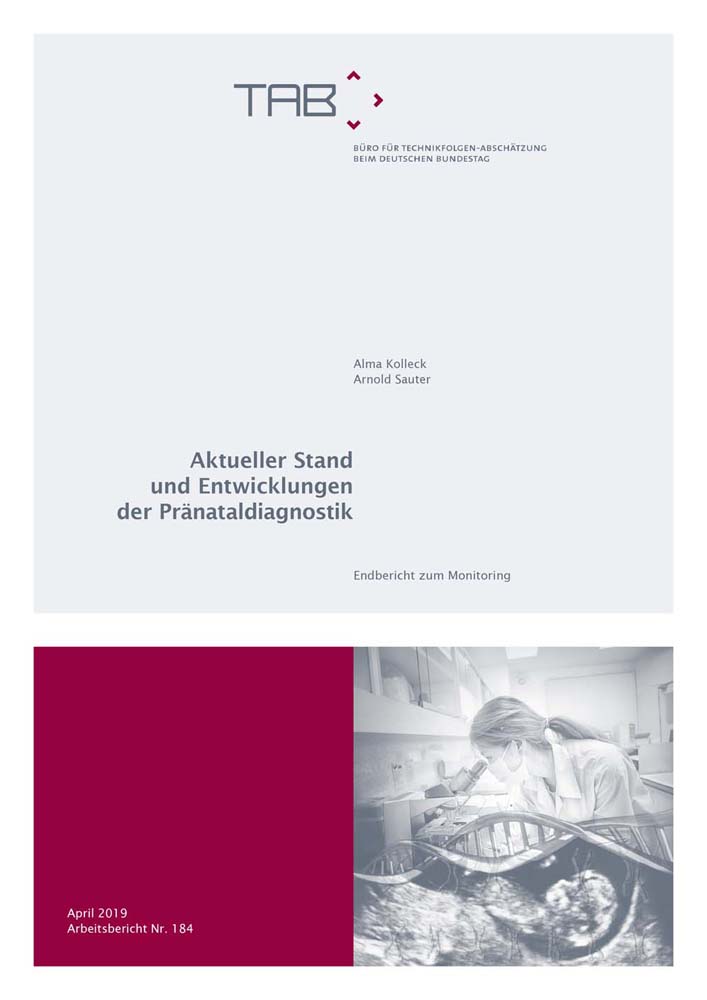Prenatal diagnosis comprehensively considered
On 11 April 2019, the German Bundestag discussed (non-invasive) prenatal genetic blood tests in a so-called orientation debate. As a current information basis, the members of parliament could already access the report »Current status and developments in prenatal diagnostics«, which was published a week earlier as a Bundestag printed matter. Now, for the important social and political debate in the run-up to the decision on the future of prenatal diagnosis due in the summer, the corresponding TAB report and the associated policy-brief TAB-Fokus no. 23 are available in printed form and, of course, also online.
For some years now, in addition to invasive methods for prenatal genetic testing of the fetus, such as amniocentesis, blood tests have been available which with a high degree of probability can detect genetic abnormalities, in particular trisomies 13, 18 and 21. In this context, fears have been expressed in some quarters that the availability of earlier applicable and low-risk testing procedures will make prenatal genetic diagnosis (PGD) an unreflective standard measure of antenatal care.
For quite some time, the responsible Federal Joint Committee (G-BA) has been dealing with the question of cost coverage for the non-invasive prenatal tests (NIPT) available in Germany since 2012.However, because the G-BA only examines and evaluates the medical-technical quality and efficiency of the procedures, it had itself called for a parliamentary referral addressing the possible ethical and social implications.
In this respect, both TAB and the TA rapporteur group were delighted that the TAB report could be approved at the meeting of the Committee on Education, Research and Technology Assessment (ABFTA) on 3 April 2019 and published as Bundestag Printed Paper 19/9059 in good time before the orientation debate on prenatal genetic blood tests in Parliament on 11 April, and could be presented beforehand by those working on the project in the ABFTA.
The TAB working report No. 184 provides an overview of the current medical-technical and legal status of PGD in Germany and summarises social, political and ethical discussion points and questions concerning PGD. The synopsis shows that from a medical-technical point of view NIPT currently do not enable any fundamentally new diagnostic findings. Their low-risk and early application compared to existing procedures can potentially lead to intensive use by pregnant women - especially if they are financed by statutory health insurance. The possibility that genetic analyses on the fetus by means of NIPT will become »normal« for many pregnant women underlines the need for a broad social debate.
In addition to the legal basis for the use of prenatal diagnosis in Germany, the TAB report also describes the regulations on PGD in selected European countries. It also provides an overview of the current counselling situation for pregnant women on PGD. The positions of selected social groups are presented in detail, including pregnant women and their doctors, psychosocial counselling centres, midwives, manufacturers and civil society activists. Finally, the report addresses ethical and social questions on prenatal diagnostics that could be deepened in a dialogue between civil society, politics and science.
To our knowledge, the TAB report is currently the only comprehensive account of prenatal diagnostiss and provides experts and the interested public with a sound basis of information for further debate on this socially and politically challenging topic.
The most important findings of the report are also presented in the associated policy brief TAB-Fokus issue in English.
28.05.2019
Downloads:
- TAB-Fokus no. 23
Status quo and developments of prenatal diagnosis - TAB-Arbeitsbericht Nr. 184 (only in German)
Aktueller Stand und Entwicklungen der Pränataldiagnostik. Endbericht zum Monitoring
Further information:


